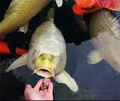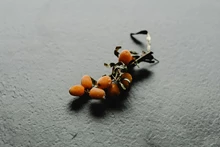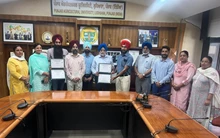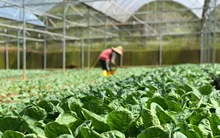
Iraq is currently grappling with a dire water shortage, putting the livelihoods of many farmers and food producers at risk. Qasem Karam, an Iraqi fish farmer from the southern province of Basra, is one of those affected. Walking across arid land in the blistering midday heat, Karam gestures towards his dried-up carp ponds, which were once nourished by the Shatt al-Arab river.
He lamented that everything was now saturated with salt due to water scarcity and pollution, pointing to nearby patches of white salt crust. He mentioned that the ponds had required significant time, money, and effort to establish, and they had a promising economic plan, but it had all been destroyed.
The decline in waterflows along the Tigris and Euphrates rivers, caused by upstream damming in Turkey and Iran, has severely impacted the Shatt al-Arab river. Additionally, the dumping of wastewater and poor rainfall due to climate change have further exacerbated the crisis. Experts and officials emphasize that these factors have resulted in a significant reduction in fish farming.
As water levels have decreased, evaporation rates have increased, making the remaining water more saline. This has rendered the water unsuitable for fish farming. Karam and three other fish farmers interviewed by Reuters all share the sentiment that the scarcity of suitable water is driving them out of what was once a thriving and profitable business.
Abbas Dakheel, an official at Basra's agriculture directorate, stated that this year only four authorized fish farms are still operational, which is a significant decrease from the 15 that were in business in 2020. Karam, who was kneeling beside a pipe that used to irrigate his pond, explained that the water has turned green, dirty, and polluted, making it impossible for any fish to survive in this environment. He further mentioned that his fish are experiencing illnesses, stunted growth, or death as a result.
Jumaa Shia, the head of Basra's directorate of water resources, acknowledges the growing water crisis and highlights the need to allocate the dwindling water resources among domestic users, agriculture, the oil industry, and electricity generation. In an effort to conserve water, authorities have taken measures such as shutting down approximately 95 unauthorized fish farms in Basra.
As farmers and food producers continue to suffer from the effects of water scarcity, it is crucial for stakeholders to work together to find long-term solutions that can mitigate the impact of upstream damming, pollution, and climate change on Iraq's water resources.











